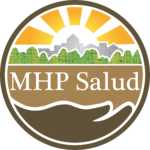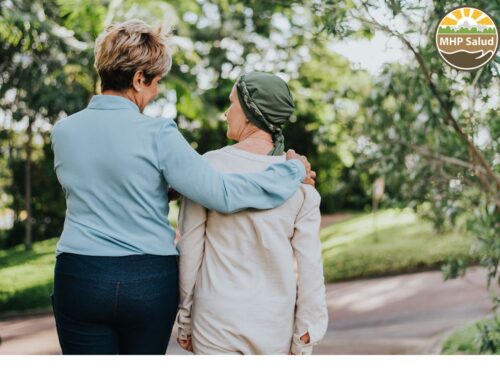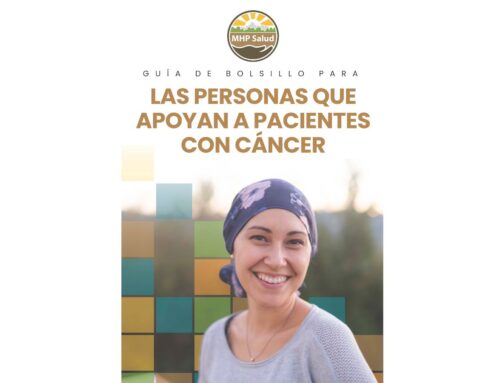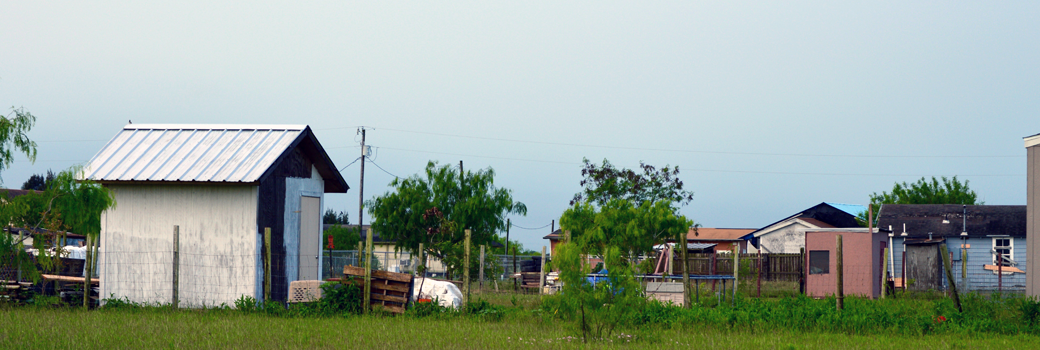
What are Colonias?
A Look at Life Inside Texas’ Border Communities:
Many of MHP Salud’s direct service programs operate inside the Rio Grande Valley’s colonias, which are defined by The Texas Office of the Secretary of State as residential areas along the Texas-Mexico border that may lack basic living necessities like potable water, septic or sewer systems, electricity, paved roads, or safe and sanitary housing. As such, residential life in the colonias is very different from many urban and suburban communities in America.
Over 500,000 people live in Texas’ colonias, 96% of whom are Hispanic or Latino. Many of these colonias began as migrant farmworker settlements, founded in response to the lack of affordable housing in the area. Typically, colonias are developed when a landowner sells land by dividing it into lots. In most cases, there is little to no residential infrastructure on the lot at the time of sale.
Although the infrastructure in colonias is substandard, and more than 40 percent of residents live below the poverty line, these conditions hide thriving communities. The people living inside the colonias are industrious, hardworking, and family-oriented. Many residents work multiple jobs to make ends meet, and homeless rates are low. It’s common to find multiple families living in a single dwelling, as residents ensure that their relatives are cared for.
The quality of homes inside colonias ranges from substandard to well-built. Often, trailer homes are combined with wooden or cinder block construction. Many homes are made entirely out of cinder block or other low-cost building materials, and are usually built by the homeowner’s family. Unfinished homes are a common sight in colonias due to construction being a piecemeal process. Construction occurs as the homeowner can afford it, which can potentially take years as the homeowner saves enough money to purchase the building materials.
A commonly held misconception about colonias is that the majority of residents are new or first-generation immigrants. However, surveys have shown that nearly two-thirds of adults are United States citizens. Over 90 percent of the youth (under 18) are citizens. Despite the relatively high rates of US citizenship, there are often cultural and linguistic barriers that residents face that make it difficult for them to gain access to healthcare, public assistance programs, and other forms of economic relief.
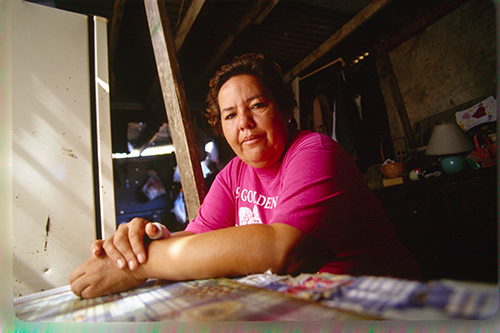
Residents of the colonias face unique challenges in everyday life.
The health issues facing colonias are complex. Due to the lack of residential infrastructure, many homes lack insulation, suffer from mosquito or pest outbreaks, and have no access to sanitary drinking water. Certain health conditions, like diabetes, are commonplace in colonias due in part to difficulty residents face when trying to purchase healthy food options. This is because many colonias residents lack reliable transportation, and the colonias themselves are often located in food deserts. A food desert is typically defined as a low-income area that is more than one mile from a supermarket in an urban area, or more than 10 miles from a supermarket in rural areas. As such, many residents of colonias rely on cheap, processed and sugar and fat-laden foods that are available in nearer convenience stores.
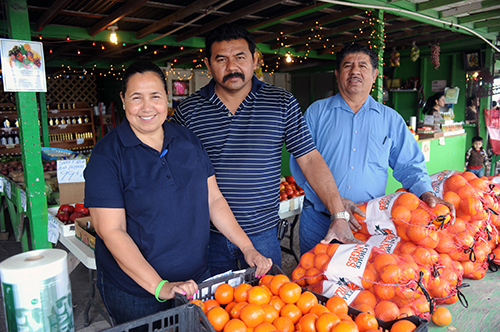
A Community Health Worker poses at a local farmers market. Often, these markets are the only source of fresh food for residents of the colonias.
This 2013 article from the Washington post describes how the economic reality of colonias residents creates a cycle of obesity in the Rio Grande Valley’s Hidalgo County: “40 percent of residents enroll in the food-stamp program… Which means a widespread reliance on cheap, processed foods contributing to higher rates of diabetes and obesity compared to the national average. If nothing changes, this is what the future looks like in the Rio Grande Valley: The Country’s hungriest region is also its most overweight, with 38.5% of the people obese. For the first time anywhere in the United States, children in South Texas have a projected life span that is a few years shorter than that of their parents.”
Since the lack of transportation options is often limited in and around colonias, residents often face difficulty when trying to access social services, health systems, and public infrastructure. Many residents also work multiple jobs which may keep them unavailable during traditional business and office hours. As such, many organizations have found it beneficial to deploy Promotoras, also known as Community Health Workers (CHWs) directly to the neighborhoods. A Community Health Worker is a trusted member of the community who empowers their peers through education and connections to health and social resources. This ensures the residents have awareness and access to services (via the CHW) that they may not have otherwise.
MHP Salud’s Colonia Outreach program utilizes CHWs to provide awareness about public assistance programs such as SNAP and TANF to residents of colonias. If residents are eligble to enroll in these programs, our CHWs also provide them with application assistance, and follow up with residents at a later date about the status of their application. Since June 1st, 2017, the Colonia Outreach Program has assisted 788 residents with applications for public assistance programs.
One of the benefits of a CHW program is that the CHWs themselves come directly from the community they are working inside. This approach leads the communities towards a brighter and healthier future, while at the same time directly empowering those communities. Inside the colonias, this empowerment is essential to overcoming the barriers of isolation that many community members face when trying to access the social safety net.
To learn more about how MHP Salud can help your clinic, organization, or FQHC start its own Community Health Worker program, please click here.
About MHP Salud
MHP Salud has over thirty years of experience implementing CHW programs and training organizations looking to start and/or strengthen their own CHW programs. For more information about MHP Salud, our services, and how we can help you, please email us at info@mhpsalud.org
Source: https://www.dallasfed.org/assets/documents/cd/pubs/lascolonias.pdf

